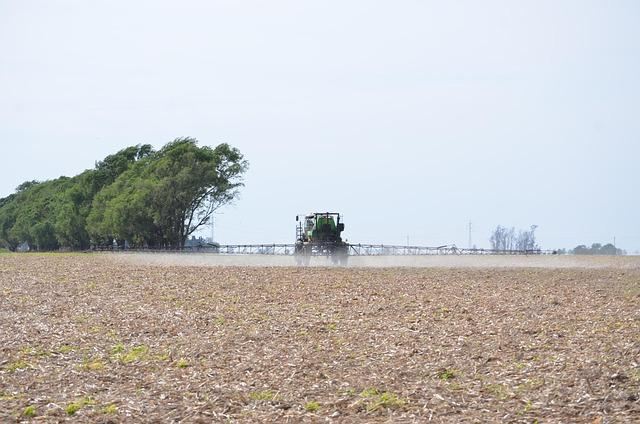France continues to attract a growing number of international students seeking quality higher education in a vibrant cultural setting. Navigating the French university application process, however, can be complex due to distinct academic requirements and administrative procedures. In this guide, Times Higher Education breaks down the essential steps and key considerations for prospective students aiming to enroll in French universities, offering practical advice to help streamline applications and increase the chances of success.
Understanding the French University System and Eligibility Requirements
The French higher education landscape offers diverse pathways for international and domestic students alike, characterized by its unique blend of public universities, grandes écoles, and specialized institutions. One of the key distinctions is the bachelor-master-doctorate (LMD) structure, aligned with the Bologna Process, which facilitates credit transfer and degree recognition across Europe. Admission generally requires successful completion of the French Baccalauréat or an equivalent qualification, but the eligibility criteria can vary significantly depending on the course and institution type.
Applicants should carefully consider the following eligibility essentials:
- Academic prerequisites: Depending on the program, specific subject backgrounds may be mandated, particularly for specialized fields like engineering or medicine.
- Language proficiency: Courses taught in French typically require DELF or DALF certification, while many universities now offer English-taught programs with corresponding TOEFL or IELTS scores.
- Application platforms: The Parcoursup system is pivotal for first-year admissions in France’s public universities, except for some selective programs managed separately.
- Documentation: Transcripts, recommendation letters, and a personal statement are standard, with additional requirements for competitive grandes Ă©coles.
| Education Level | Typical Duration | Entry Requirement |
|---|---|---|
| Bachelor (Licence) | 3 years | High school diploma or equivalent |
| Master | 2 years | Bachelor degree in related field |
| Doctorate (PhD) | 3-4 years | Master degree + research proposal |
Navigating the Application Process for International Students
International students aiming to study in France must first understand the distinctive application procedures tailored to their status. Unlike domestic applicants, many will engage with the Campus France platform, a centralized online portal designed to simplify university admissions. Before starting the application, candidates should gather essential documents, including validated transcripts, proof of language proficiency (usually French or English), and a detailed statement of purpose. Universities emphasize a holistic review, often considering academic records alongside the clarity of the candidate’s motivation and future goals.
To help streamline this process, here’s a quick overview of key steps and tips to ensure a smooth application experience:
- Register on Campus France: This official platform manages applications and interview scheduling.
- Prepare your documents: Include certified copies, translations if necessary, and standardized test scores.
- Submit your application: Customize your application to each program’s requirements to maximize acceptance chances.
- Attend the interview: A crucial element where universities assess linguistic skills and academic readiness.
- Monitor application status: Timely responses and additional documentation requests are common, requiring prompt attention.
| Stage | Typical Duration | Key Advice |
|---|---|---|
| Campus France Registration | 2-3 weeks | Be precise with your academic and personal information. |
| Document Preparation | 3-4 weeks | Request official transcripts early to avoid delays. |
| University Application Submission | Varies by university | Meet deadlines strictly; differentiate your application. |
| Interview Scheduling | 1-2 weeks | Practice common questions; show genuine motivation. |
| Final Decision | 4-6 weeks | Have backup options and prepare for visa steps. |
Key Documents and Deadlines You Need to Know
When preparing your application to universities in France, several critical documents are mandatory to ensure a smooth process. These include your academic transcripts, a valid passport or identity card, a motivation letter tailored to your chosen program, and official proof of language proficiency (French or English, depending on the course). Additionally, many institutions require letters of recommendation and a CV outlining your academic and extracurricular achievements. Pay special attention to the translation and notarization requirements for non-French documents to avoid any application delays.
Deadlines vary significantly by university and program, but as a general rule, the main application period for the academic year spans from January to March. Below is a simplified timeline to help you organize your submissions effectively:
| Application Stage | Typical Deadline | Notes |
|---|---|---|
| Submission of Application Forms | Mid-March | Via Parcoursup or university portals |
| Language Certificate Submission | End of April | DELF/DALF or IELTS/TOEFL |
| Interview and Additional Tests | May | Varies by program |
| Final Acceptance Notification | June to July | Check your account regularly |
Tips for Writing a Compelling Personal Statement and Securing References
Crafting a personal statement that stands out is crucial in the competitive landscape of French university admissions. Focus on clarity, authenticity, and relevance—demonstrating not only your academic interests and achievements but also your motivations and long-term goals. Admissions committees appreciate concise storytelling that connects your personal background with your chosen field of study. Avoid clichés and generic phrases by illustrating your points with specific examples, such as pivotal experiences or challenges overcome. Remember, your statement is your opportunity to present yourself beyond grades and test scores, so maintain a confident yet humble tone throughout.
Securing strong references is equally vital as they provide an external perspective on your capabilities and character. Approach potential referees—whether teachers, employers, or mentors—early and provide them with detailed information about your academic and extracurricular pursuits to help them write a personalized and compelling letter. It’s advisable to request references from individuals who know you well and can vouch for your work ethic, intellectual curiosity, and suitability for your chosen program. If you’re unsure, here’s a simple checklist to help guide your preparation:
- Choose wisely: Select referees familiar with your strengths.
- Provide context: Share your personal statement and CV with them.
- Request early: Allow ample time for reference writing.
- Follow up politely: Ensure references are submitted before deadlines.
In Retrospect
Navigating the complexities of applying to university in France requires careful preparation and a clear understanding of the country’s unique admissions processes. As this guide has outlined, prospective students must familiarize themselves with key requirements, deadlines, and the various pathways available, from Parcoursup for undergraduate admissions to specialized procedures for international candidates. With France’s rich academic tradition and diverse educational offerings, applicants who approach the process with thorough research and strategic planning stand the best chance of success. For those looking to pursue higher education in one of Europe’s most vibrant cultural and academic hubs, staying informed and proactive remains essential.


![Discover the Top 20 Business Influencers Driving France’s Future in 2026! Top 20 Business Influencers in France in 2026 [🏆Rating] – Favikon](https://news-france.info/wp-content/uploads/2026/02/43985-top-20-business-influencers-in-france-in-2026-rating-favikon-450x450.jpg)

